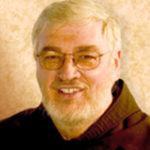
Readings:
Reading 1: Ezekiel 2:2-5
Responsorial Psalm: Psalm 123:1-2, 2, 3-4
Reading 2: 2 Corinthians 12:7-10
Gospel: Mark 6:1-6
The two towering figures of early Christianity are, of course, Jesus and Paul. Jesus was a carpenter turned prophet, who managed to attract a modest following but who came to a tragic end, having been executed by the Roman occupiers of Judea. Jesus’ followers, however, believed him to be more than a prophet but the Son of God who announced the coming of God’s reign and called people to repentance and faith. Jesus never left the confines of his ancestral homeland. He preached only to Jews living there. By way of contrast, Paul was a Jew from the Diaspora. He came to Jerusalem to study with a leading rabbi of the day and became a staunch and active opponent of the Christian movement. To the surprise of many in that movement, Paul claimed to have had an encounter with the Risen Jesus. That encounter eventually lead Paul to become early Christianity’s most skillful exponent of its beliefs. Paul believed that the gospel was more than another way of being a Jew, so he took the message of Jesus to non-Jews all around the eastern Mediterranean region before finally being himself executed by the Romans. This is what any historian would say about Jesus and Paul.
The gospels and Paul’s letters say much more. They fill in details that historians may not be interested in — details that give a more complete picture. Yes, it is true that more than any other two individuals, Jesus and Paul were responsible for the Christian movement which today has more than 3.4 billion adherents worldwide. Today’s Scriptures remind us, however, that they did not always enjoy great success. Most of Jesus’ following came from the villages around the Sea of Galilee where he developed a reputation for being a captivating preacher and a compassionate healer. When Jesus made a visit to Nazareth his hometown where he had lived most of his life the place of his roots a place where people knew him by name, the townspeople were unimpressed. “Is he not the carpenter . . . ?” (Mark 6:3), they asked. The famous healer and preacher was not the Jesus they had known. It was all too much for them. Paul too had his problems. Some of the Christians of Corinth were falling for false prophets who boasted of ecstasies, visions, and miracles. Though Paul established the church at Corinth, there were some who wanted to push him aside. He was a Jew, after all, and not a good speaker. Other members of the community were far better suited for leadership. This may have led to bouts of depression in Paul: “a thorn in the flesh was given to me . . . to keep me from being too elated,” (2 Cor 12:7) he wrote. Both Jesus and Paul knew what it meant to be shunted to the periphery of their respective communities.
At various times and many places, those who believed in Jesus were relegated to the margins of society. In 19th century America, for example, Catholics were not trusted because many Catholic immigrants did not speak English, practiced a religion thought by many Americans to be strange, and were supposedly more loyal to the pope than to the United States. Catholics were often denied the opportunity to work or at best they were hired for menial jobs without the prospect of advancement. Being a Catholic meant being denied entrance into the best schools and being kept out of the professions and social organizations. Today, however, Catholics are no longer on the periphery of American life; they are in the mainstream. There have been two Catholics elected to the presidency. Fifty-five percent of the members of Congress and six members of the Supreme Court are Catholics. Catholics are represented at every level of the professions, the arts, and business. At one time, the Ku Klux Klan included Catholics along with African-Americans and Jews as objects of hatred, discrimination, and persecution. Today the Klan admits Catholics — an unwelcome recognition of the social and political status of American Catholics.
The question we American Catholics must ask ourselves is whether we have forgotten our immigrant roots. Has the relegation of Catholics to the American periphery been exorcised from our collective memory? The US bishops have attempted to marshal American Catholic political influence to support comprehensive immigration reform. Despite the need for such reform, the Congress has not passed the necessary legislation. Welcoming new immigrants not only from Europe but also from the Americas, Asia, Africa, and the South Pacific Islands is the task of all Americans. Many of these immigrants are fleeing political oppression, economic injustice, ethnic and religious intolerance. They all have a single goal: to give their families the chance to enjoy the blessings that God has given to all people. American Catholics should stand with those seeking to find a better life in this country. This is our historical responsibility.
Both Jesus and Paul found themselves on the periphery of their respective communities. That is one reason the Church ought to stand with those on the margins today. There is nothing more Catholic nothing more American than supporting comprehensive immigration reform. It turns the great ideal of the Declaration of Independence into reality: “We hold these truths to be self-evident, that all men are created equal, that they are endowed by their Creator with certain unalienable Rights, that among these are Life, Liberty and the pursuit of Happiness.”
Rev. Leslie J. Hoppe, OFM
Professor Emeritus of Biblical Studies